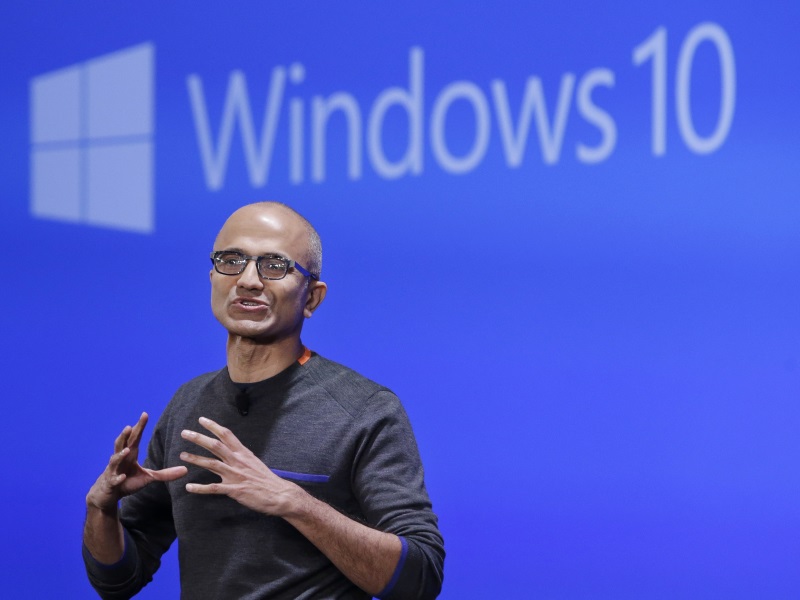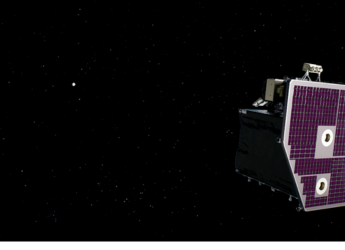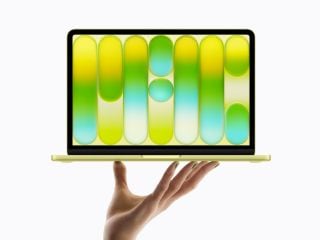- Home
- Laptops
- Laptops Features
- Windows 10 Now a Mandatory Update Here's How You Can Stop It From Installing
Windows 10 Now a Mandatory Update - Here's How You Can Stop It From Installing

You never requested it, so why are you getting it?
The automatic download is part of Microsoft's aggressive push to get Windows 10 on as many devices as possible. Since last July, Microsoft has distributed the free upgrade on request. But starting this week, it's also pushing it out to those who haven't requested it - and who might not want it.
(Also see: Microsoft Labels Windows 10 as a Recommended Update)
Microsoft isn't actually installing Windows 10 automatically, but installation is just a click or two away. If you're not careful, you might suddenly find the new system on your old machine.
Is this good for you?
Why you should install Windows 10
Windows 10 has many improvements over its predecessors - especially Windows 8. It's much easier to use than Windows 8, and it offers more modern controls - akin to mobile devices - than Windows 7. (There is no Windows 9.) Windows 10 also paves the way for multiple devices to work together. You might be able to buy an app once to run on your PC, phone and Xbox game machine, for instance. The app's layout would automatically reconfigure to the given screen size.
(Also see: Eight Reasons Why You Should Upgrade to Windows 10)
New apps are being designed for Windows 10, so if you have an older system, you might find yourself shut out.
Why Microsoft wants you to install Windows 10
Microsoft is reducing reliance on software sales in favour of services such as the Bing search engine, OneDrive storage and Skype for communications. Windows 10 was designed to steer users to those services. Microsoft makes money from ads and premium features that cost money - such as additional OneDrive storage.
Microsoft can also encourage app makers to write more software for Windows 10 if a lot of people are using it. It's similar to how Apple pushes its users to upgrade to the latest iPhone and Mac systems. App developers know they can enable the latest features without worrying about abandoning too many users of older devices.
(Also see: Microsoft Makes It Easier to Upgrade to Windows 10)
Reasons not to install Windows 10
System upgrades aren't always smooth, especially on older machines with slower processors, less memory and less storage space available. Microsoft's Get Windows 10 app will verify that you meet minimum system requirements - but minimum doesn't mean speedy.
Older machines also might have software that won't work on Windows 10, so you'd have to spend money upgrading those programs, if upgrades are available at all. Printers, scanners and other accessories also might need new controlling software, called drivers. If a driver update isn't available, you might find yourself with a dead accessory.
And once you upgrade to Windows 10, you might be ceding control over future upgrades to Microsoft. The company is offering incremental updates to Windows 10 on a regular basis, and it won't always give you a choice on whether to accept.
(Also see: Features You'll Lose When Upgrading to Windows 10)
How to stop Windows 10 update
Microsoft is treating Windows 10 as a type of security update it regularly pushes to users. Microsoft is now reclassifying Windows 10 as "recommended" rather than "optional." In doing so, those who have set their machine to automatically get important updates will get Windows 10, too. You can avoid this by turning off automatic updates in the settings under Windows Update. That's not recommended, though, because you might miss important security fixes.
(Also see: Windows 10 Upgrade Could Install 'Automatically' if You Aren't Careful)
If you work for a large company, your system administrators are likely monitoring these updates, so Windows 10 won't automatically download without their OK. Plus, Microsoft isn't offering Windows 10 for free to larger companies.
Microsoft will support Windows 7 until 2020 and Windows 8 until 2023, after which time it will stop fixing any security problems. By then, it might be time for a new computer anyway.
(Also see: Windows 10 Review: New, Yet Familiar)
If you're ready to install Windows 10
To install Windows 10, all you need to do is accept it when prompted. Getting Windows 10 shouldn't affect your photos and other documents, though there's always a risk of a meltdown with any major upgrade. Back up your files first. You can use an online storage service such as OneDrive or DropBox to keep a backup online.
How to roll back from Windows 10
Microsoft keeps a backup of your system for a month. In the settings, go to "Update & security" and then "Recovery." You'll find the option to return to Windows 7 or 8. Your files should be OK, but you'll lose any apps installed after upgrading to Windows 10. Remember, you have only 31 days to change your mind.
(Also see: How to Downgrade From Windows 10 to Windows 7 or Windows 8.1)
For details of the latest launches and news from Samsung, Xiaomi, Realme, OnePlus, Oppo and other companies at the Mobile World Congress in Barcelona, visit our MWC 2026 hub.
Related Stories
- Samsung Galaxy Unpacked 2026
- iPhone 17 Pro Max
- ChatGPT
- iOS 26
- Laptop Under 50000
- Smartwatch Under 10000
- Apple Vision Pro
- Oneplus 12
- OnePlus Nord CE 3 Lite 5G
- iPhone 13
- Xiaomi 14 Pro
- Oppo Find N3
- Tecno Spark Go (2023)
- Realme V30
- Best Phones Under 25000
- Samsung Galaxy S24 Series
- Cryptocurrency
- iQoo 12
- Samsung Galaxy S24 Ultra
- Giottus
- Samsung Galaxy Z Flip 5
- Apple 'Scary Fast'
- Housefull 5
- GoPro Hero 12 Black Review
- Invincible Season 2
- JioGlass
- HD Ready TV
- Latest Mobile Phones
- Compare Phones
- Vivo X300 FE
- Tecno Pop X
- Apple iPhone 17e
- AI+ Pulse 2
- Motorola Razr Fold
- Honor Magic V6
- Leica Leitzphone
- Samsung Galaxy S26+
- MacBook Neo
- MacBook Pro 16-Inch (M5 Max, 2026)
- Tecno Megapad 2
- Apple iPad Air 13-Inch (2026) Wi-Fi + Cellular
- Tecno Watch GT 1S
- Huawei Watch GT Runner 2
- Xiaomi QLED TV X Pro 75
- Haier H5E Series
- Asus ROG Ally
- Nintendo Switch Lite
- Haier 1.6 Ton 5 Star Inverter Split AC (HSU19G-MZAID5BN-INV)
- Haier 1.6 Ton 5 Star Inverter Split AC (HSU19G-MZAIM5BN-INV)

















